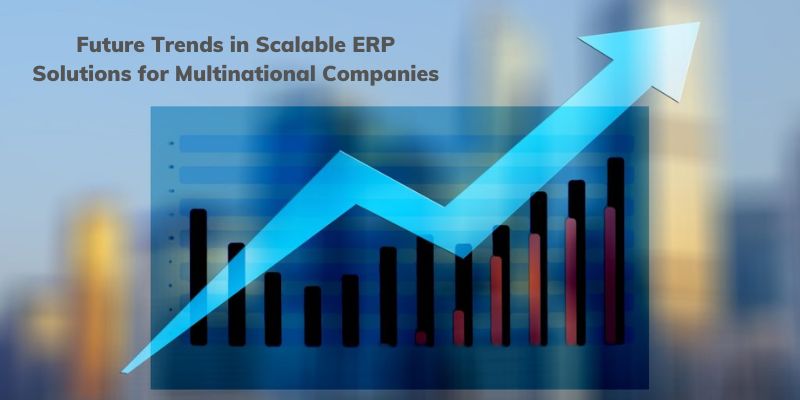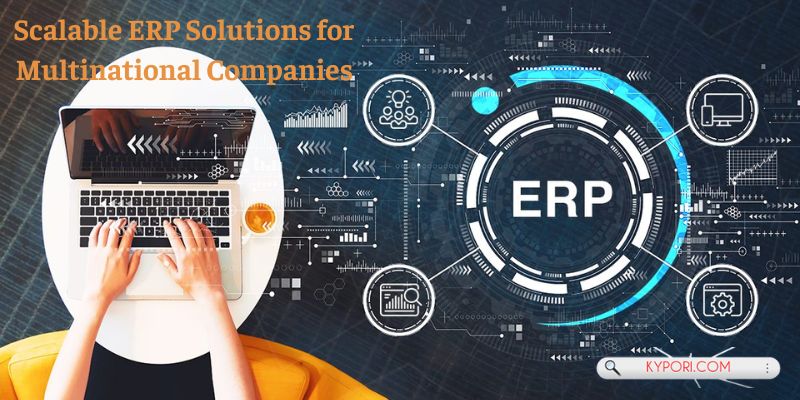In today’s digital age, multinational companies are facing increasingly complex business challenges. Managing operations across different countries, regions, and business units requires sophisticated systems and processes to ensure smooth operations and decision-making. Enterprise Resource Planning (ERP) systems are one such tool that has become essential for multinational companies. However, with the ever-evolving business landscape, scalable ERP solutions for multinational companies have emerged as the future of global business.
Scalable ERP solutions provide a wide range of benefits to multinational companies, including improved efficiency and productivity, better decision-making, cost savings, and scalability. Let’s explore each of these benefits in detail with Kypori.
Benefits of Scalable ERP Solutions for Multinational Companies
Improved Efficiency and Productivity
Multinational companies have to deal with a large volume of data across different regions, languages, and business units. Managing this data manually can be time-consuming and error-prone. Scalable ERP solutions for multinational companies offer streamlined business processes and automated data management, enabling companies to manage their data efficiently. By automating repetitive tasks, ERP solutions free up resources that can be used for more productive tasks.

Real-time access to business information is another significant advantage of scalable ERP solutions for multinational companies. With the data stored in a central database, business users can access the information they need, anytime, anywhere. This leads to faster and more informed decision-making, ultimately improving the overall efficiency and productivity of the organization.
Better Decision Making
Cost Savings

Scalability
Case Studies of Multinational Companies Using Scalable ERP Solutions
The benefits of scalable ERP solutions for multinational companies are clear, but how do these benefits translate into real-world applications? Let’s explore two case studies of multinational companies using scalable ERP solutions.
Company A: Implementation of Scalable ERP Solution
Company A is a multinational retailer with operations across several nations. Because of its fragmented and poorly visible supply chain, the company was having trouble managing it. They also had trouble with manual procedures that were ineffective and caused mistakes and delays in decision-making.
Company B: Scalable ERP Solution for Global Expansion
Company B is a multinational manufacturing company that was expanding globally. The company faced challenges in integrating different business units, managing different currencies, and adapting to local regulations and tax laws.

Future Trends in Scalable ERP Solutions for Multinational Companies
Scalable ERP solutions have become an essential tool for multinational companies, but the future of ERP systems is still evolving. Here are some of the trends that are likely to shape the future of ERP systems:
Cloud-based ERP Solutions: Cloud-based ERP solutions offer several advantages, including scalability, flexibility, and lower upfront costs. With cloud-based ERP solutions, companies can easily add or remove modules, scale up or down as needed, and access their data from anywhere.
AI and Machine Learning in ERP Systems: ERP systems already employ AI and machine learning for automation, anomaly detection, and predictive analytics. Future ERP systems may be expected to include AI and machine learning even more, allowing businesses to automate complex operations and make better judgments.
Blockchain and ERP Integration: Blockchain technology has the power to completely change how we manage and keep data. Business organizations may guarantee data quality, security, and traceability by integrating blockchain with ERP systems. The healthcare, supply chain, and financial services sectors can all benefit greatly from this integration.
Cybersecurity and Data Privacy: As companies store more data in their ERP systems, cybersecurity and data privacy become even more critical. In the future, we can expect ERP solutions to incorporate advanced security features such as encryption, access controls, and threat detection.
Integration with Other Enterprise Systems: In today’s complex business environment, companies use several enterprise systems, such as CRM, SCM, and HRMS. Integrating ERP solutions with these systems can provide a holistic view of the business, enabling companies to make better-informed decisions.
Conclusion
Scalable ERP solutions are the future of global business, providing a wide range of benefits to multinational companies. These benefits include improved efficiency and productivity, better decision-making, cost savings, and scalability. Real-world case studies demonstrate the practical applications of these benefits. As the business landscape evolves, we can expect scalable ERP solutions for multinational companies to continue to evolve, incorporating trends such as cloud-based solutions, AI and machine learning, blockchain integration, cybersecurity and data privacy, and integration with other enterprise systems. Multinational companies that adopt scalable ERP solutions will be better equipped to meet the challenges of today’s business environment and stay ahead of their competitors.

